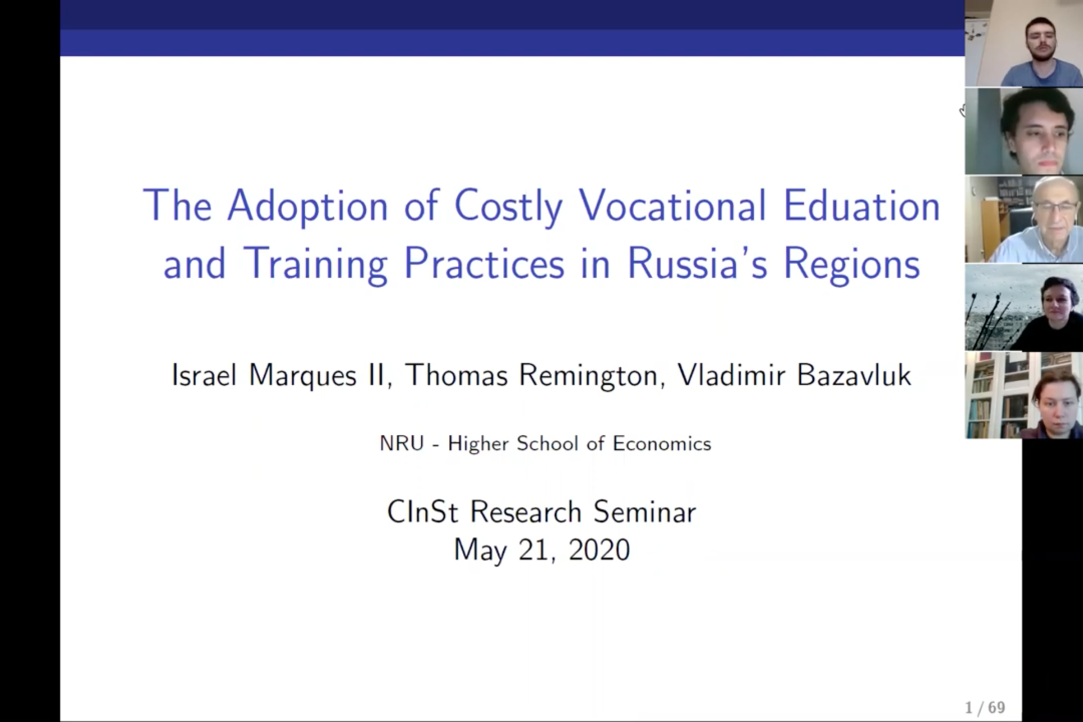How and when are governments able to encourage firms and schools to work together to develop workers’ skills?
Israel Marques presented a joint paper "Encouraging Skill Development: Evidence from Public-Private Partnerships in Education in Russia’s Regions" on the regular CInSt research seminar on 21st May

Upgrading the quality of human capital in the workforce is widely seen as a key challenge faced by countries looking to escape the “middle income trap.” Growing attention has been paid to pubations and labor unions – are often missing in such settings. To explore the emergence of PPP in skill development in the developing world, the authors draw on recent reform experiences in Russia’s regions that have led to a surge in complex, costly forms of PPP despite weakly developed business associations and unions.
The authors argue that variation in the administrative capacity of regional governments and their political accountability explains this surge. Strong administrative capacity reassures all parties that regional authorities can monitor their counterparties’ compliance with agreements, while political accountability creates incentives for authorities to do so.
Please, watch the seminar on YouTube:
https://youtu.be/cj8lJiPtTyo
The link to the full paper:
https://doi.org/10.1016/j.ejpoleco.2020.101888
